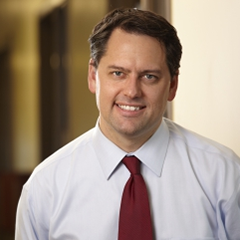Interview With Dr. Jeff Sharman

Dr. Jeff Sharman
Interview With Dr. Jeff Sharman
Dr. Jeff Sharman is Medical Director of Hematology Research at The US Oncology Network, one of the largest networks of integrated, community-based oncology practices in the US. US Oncology includes over 1000 physicians practicing at more than 350 sites in 19 states, and treats more than 750,000 patients annually. Dr. Sharman is also on the Patient Empowerment Network Advisory Board.
The US Oncology Research Network has enrolled over 60,000 patients in about 1,400 clinical trials so far. The website offers a trial finder that will connect you with a US Oncology practice near you that has clinical trials available.
Dr. Sharman is convinced that although research adds to a physician’s workload, it enlivens a practice and adds to productivity. In a video on the US Oncology website, Sharman says US Oncology found that physicians that recruit one patient per month on average are 70% more productive than their counterparts.
I asked Dr. Sharman several questions about the clinical trial process and he was kind enough to answer.
1. From the physician perspective, what are the 3 biggest obstacles in the clinical trial process?
“Regulatory oversight has become too burdensome. In major academic centers and cooperative groups, it can literally take YEARS to open some studies – let alone accrue the study and determine the results. Often the key scientific questions have changed before the study is executed and the results are no longer relevant by the time they are answered. It is a case of “death by good intentions” to see such caution in clinical trials, but unfortunately, patients are dying while studies are acquiring the requisite signatures to get started. In community practice, we are able to cut start up time to a small fraction of our academic counterparts, but the oncology practice environment these days makes it hard to fully engage in both clinical medicine and research. Eligible patients are often not enrolled in clinical trials that are available at their own site because physicians are not able to slow down enough to connect the dots.”
2. What is the one thing that industry/government can do to make the clinical trial process easier? Why don’t they do it?
“Reduce the barriers to enrolling patients on clinical trials at the Medicare level and possibly even provide greater incentive to sites for quality research participation. Medicare Advantage plans until recently had regulations that actually INCREASED the cost to patients to enroll on clinical trials. Patients had higher copay (went from 10% to 20%) AND they lost maximum cap guarantee. It was a powerful DISINCENTIVE to clinical trial participation. That has been improved however Medicare is currently adopting numerous quality measures in reimbursement models to practicing physicians. Research engagement could easily be included in these quality measures and would powerfully encourage participation. Policies that are adopted by Medicare are often followed by major insurance carriers so there could be a spill over effect.”
3. Who are the major influencers in this arena? (This includes patients, advocates, industry, government and HCPs)
“Right now, virtually all power resides with the pharmaceutical companies. They are the only entities with the budgets to sponsor clinical trials. Government funding and grant agencies probably account for less than 10% of current clinical research in oncology. Government could create tax incentives for pharmaceutical companies to provide research opportunities to investigators for more investigator initiated studies.”
4. What are the major positive changes that have been made to the clinical trial process in the past 2 years?
“The agents used currently in clinical trials are based upon a far more detailed understanding of cancer biology than the cancer drugs of only 10 years ago. With greater precision, drugs are often more effective with fewer side effects. Furthermore, we are far more capable of understanding the unique biology of an individual’s cancer. In the past, we might just call a disease by a specific name, but now we can often find the unique molecular heterogeneity within a single patients cancer. This allows us to explore investigational therapies that may be unique to an individual patient.”
5. What is US Oncology Network doing in the way of clinical trial awareness for doctors and patients?
“Our network will enroll over 4000 patients to clinical trials this year alone. US Oncology is a management organization for many practices and through thoughtful leadership enhanced the role of research within many practices. US Oncology research has dramatically improved relationships with sponsors and sites to bring the best clinical trials to patients. I could talk for hours on this.”
Thank you, Dr. Jeff Sharman and US Oncology!
Please discuss your treatment options with your medical team and,
Consider Clinical Trials!
(We want to help those considering clinical trials. Please take a look at our FAQ, and Clinical Trial Toolkit pages for some helpful resources)

